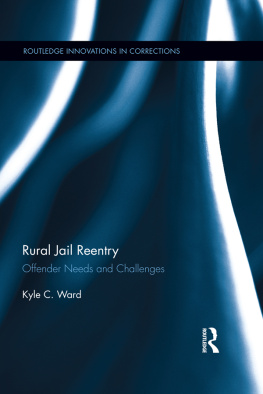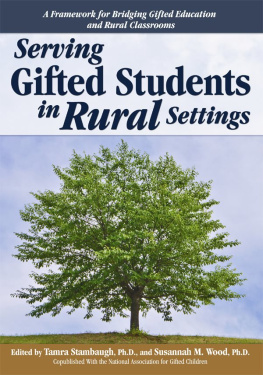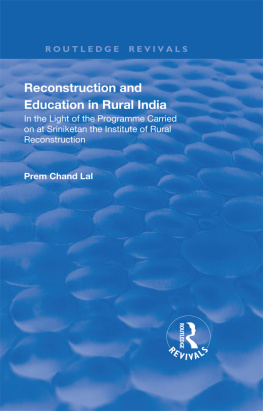Rural Education in Urbanized Nations
Other Titles in This Series
Evaluating Teachers and Administrators: A Performance Objectives Approach, George B. Redfern
Education in Rural America: A Reassessment of Conventional Wisdom, edited by Jonathan P. Sher
Also of Interest
The Family in Rural Society, edited by Raymond T. Coward and William M. Smith
Goodbye to Excellence: A Critical Look at Minimum Competency Testing, Mitchell B. Lazarus
The Transition of Youth to Adulthood: A Bridge Too Long, The National Commission on Youth, B. Frank Brown, Director
The Undergraduate Curriculum: A Guide to Innovation and Reform, Clifton F. Conrad
Found: Long-Term Gains from Early Intervention , edited by Bernard Brown
Legal Handbook for Educators, Patricia A. Hollander
Psychology and Education of Gifted Children, Philip Vernon, Georgina Adamson, and Dorothy Vernon
Politics in Rural America: People, Parties, and Policy, Frank M. Bryan
Poverty in Rural America: A Case Study, Janet M. Fitchen
Westview Special Studies in Education
Rural Education in Urbanized Nations: Issues and Innovations
edited by Jonathan P. Sher
A reversal in rural-to-urban migration patterns is creating increasing interest in the quality of education in rural areas and in techniques for meeting educational needs in sparsely populated regions. Wholesale urbanization of rural schools generally is rejected as a potential solution: it is logistically inefficient; centralization and standardization are met with growing resistance; and conventional solutions to educational problems produce uneven results when applied to rural areas.
This book addresses the broad spectrum of rural education issues within OECD member countries. The authors identify innovative programs, policies, and strategies and point toward the more promising paths for rural school improvement. They also issue warnings about some of the blind alleys and dead ends that can be encountered. The major topics covered include delivery systems, in-school innovations, support mechanisms, and community-school linkages.
Jonathan P. Sher, author of Education in Rural America: A Reassessment of Conventional Wisdom (Westview Press, 1977), is the head of the Rural Programme, Centre for Educational Research and Innovation, of the Organisation for Economic Co-operation and Development in Paris, France. In addition, Dr. Sher is currently a visiting scholar at the school of education of the University of North Carolina in Chapel Hill.
Published in cooperation with the
Centre for Educational Research and Innovation,
Organisation for Economic Co-operation and Development,
Paris, France
Rural Education in Urbanized Nations: Issues and Innovations
edited by Jonathan P. Sher
An OECD/CERI Report
First published 1981 by Westview Press
Published 2019 by Routledge
52 Vanderbilt Avenue, New York, NY 10017
2 Park Square, Milton Park, Abingdon, Oxon OX14 4RN
Routledge is an imprint of the Taylor & Francis Group, an informa business
Copyright 1981 by the Organisation for Economic Co-operation and Development
All rights reserved. No part of this book may be reprinted or reproduced or utilised in any form or by any electronic, mechanical, or other means, now known or hereafter invented, including photocopying and recording, or in any information storage or retrieval system, without permission in writing from the publishers.
Notice:
Product or corporate names may be trademarks or registered trademarks, and are used only for identification and explanation without intent to infringe.
Library of Congress Cataloging in Publication Data
Main entry under title:
Rural education in urbanized nations.
(Westview special studies in education)
"An OECD/CERI report."
Includes bibliographical references.
1. Education, RuralAddresses, essays, lectures. 2. Correspondence schools and courses
Addresses, essays, lectures. 3. Television in educationAddresses, essays, lectures. I. Sher,
Jonathan P. II. Centre for Educational Research and Innovation.
LC5146.R87 370.19'346 80-19083
ISBN 13: 978-0-367-28630-9 (hbk)
To my family:
especially Ada, Mom and Pop Sher,
and Matthew and Evelyn
If Blanche Dubois had had you behind her,
she wouldn't have had to rely on
the kindness of strangers.
Contents
- PART 1
THE REEMERGENCE OF RURAL EDUCATION - PART 2
RURAL EDUCATION INNOVATIONS
- PART 1
THE REEMERGENCE OF RURAL EDUCATION - PART 2
RURAL EDUCATION INNOVATIONS
Guide
| TABLES |
| Chapter 3 |
| Chapter 5 |
| Chapter 7 |
| Chapter 8 |
| Chapter 9 |
| Chapter 11 |
| Chapter 12 |
| FIGURES |
| Chapter 3 |
| Chapter 4 |
| Chapter 5 |
| Chapter 6 |
| Chapter 7 |
| Chapter 8 |
| Chapter 9 |
| Chapter 11 |
The information that appears in this volume was collected as part of the program of work for the OECD/CERI SPA project, Before introducing the book's contents, it may be useful to begin by unscrambling all these initials.
OECD is the Organisation for Economic Co-operation and Development. Although it was officially created in 1961, OECD can properly be seen as having started just after World War II. In fact, in its earlier incarnation, OECD was the agency directly responsible for administering the Marshall Plan for the economic recovery of Europe.
Currently, the Organisation is composed of twenty-four member national governments. Included are the following countries: Australia, Austria, Belgium, Canada, Denmark, Finland, France, Germany, Greece, Iceland, Ireland, Italy, Japan, Luxembourg, Netherlands, New Zealand, Norway, Portugal, Spain, Sweden, Switzerland, Turkey, United Kingdom, and the United States. Yugoslavia also participates in the work of OECD under a special arrangement.
OECD's basic missions are, first, to help member governments promote economic growth, employment, and improved standards of living; and second, to help promote a sound world economy through international cooperation. Under the direction of the OECD Council, the secretary general, and specialized committees, the Organisation is divided into a series of administrative directorates. In relation to this volume, the most important of these is the Directorate for Social Affairs, Manpower and Education.
Within this directorate is a research-oriented unit called the Centre for Educational Research and Innovation (CERI). Created in 1968, CERI operates under the supervision of an independent governing board (on which each member country holds one seat). CERI's basic mandate has been to promote cooperation among member countries in the field of educational research and innovation. Over the past twelve years, CERI has sponsored projects on a wide range of educational concerns including recurrent and continuing education, educational technology, curriculum development,







